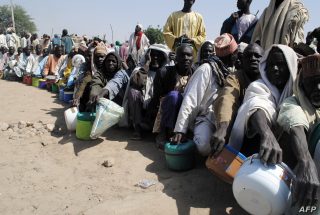The 2019 edition of the Global Peace Index (GPI) has placed Nigeria among the least peaceful nations in the world, retaining its position in the previous year – 148 of 163 countries. In sub-Saharan Africa, it ranked 40 out of 44 with Mauritius topping the list and South Sudan ranking least.
Produced by the Institute for Economics and Peace (IEP), the GPI is the world’s leading measure of global peacefulness using three thematic domains which are the level of Societal Safety and Security; the extent of Ongoing Domestic and International Conflict; and the degree of Militarisation. The GPI covers 99.7 percent of the world’s population, using 23 qualitative and quantitative indicators from highly respected sources.
Iceland and New Zealand retained their positions as the first and second most peaceful countries respectively, while Portugal upstaged Austria to take the third position. On the other end, Syria went from being the least peaceful to second least peaceful while Afghanistan went one place down to being the least peaceful country.
The organisation revealed that overall peacefulness increased slightly, with the likes of Ukraine, Sudan, Egypt, North Macedonia and Rwanda showing significant improvements in peace. However, the 2019 GPI showed “conflicts and crises that emerged in the past decade remain unresolved” but some progress has been made towards achieving peace.
“The average level of global peacefulness improved very slightly last year on the 2019 Global Peace Index (GPI). This was the first time that the index improved in the last five years. The average country score improved by -0.09 per cent, with 86 countries improving and 76 recording deteriorations,” the report read.
Peace situation in Nigeria
Whereas some other African countries such as Tanzania, Egypt and Rwanda improved in the rankings, the most populated country in Africa remained stagnant even though its score rose by 0.025, from 2.873 in 2018 to 2.898 in 2019.
The slight increase in score is down to it being among the countries where the number of deaths decreased. Nevertheless, that was not enough to see Nigeria ranked outside of the top five least peaceful countries in the region alongside conflict-ridden Somalia, the Democratic Republic of the Congo (DRC), Central African Republic (CAR), and South Sudan.
One of the factors behind the country’s poor turnout is climate change. The report showed that eight of the 25 least peaceful countries have ten percent or more of their population in high climate hazard areas, amounting to 103.7 million people at risk. These countries are South Sudan, Iraq, Libya, DRC, Sudan, North Korea, Nigeria, and Mexico.
“The impacts of a lack of water has also affected conflict dynamics in Nigeria. Lake Chad, a major source of fishing and farming livelihoods, lost 90 percent of its surface area in the past 40 years due to climate change and environmental mismanagement,” the GPI stated. In other words, climate change can indirectly increase the likelihood of violent conflict through its impacts on resource availability, livelihood security, and migration.
Other resulting negative implications of climate change are unemployment and food insecurity, which contributes to Boko Haram’s successful recruitment of unemployed youths in the area, further fueling insurgency and instability.
Moreover, Nigeria is faced with problems such as economic stagnation, piracy and an increasing rate of suicide, the latter arising from what the report describes as an increase in “experiences of sadness, stress, and worry” by the people, regardless of peace levels.
Safety and security was sub-Saharan Africa’s least peaceful domain and recorded the largest deterioration last year. While militarisation was the region’s most peaceful domain and the only one in which it outperforms the global average.








